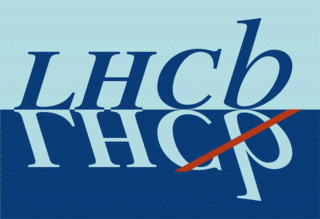ATLAS DAOD_PHYSLITE format Run 2 2016 proton-proton collision data
ATLAS collaboration
Cite as: ATLAS collaboration (2024). ATLAS DAOD_PHYSLITE format Run 2 2016 proton-proton collision data. CERN Open Data Portal. DOI:10.7483/OPENDATA.ATLAS.4ZES.DJHA
Data recorded in 2016 and published in 2024Dataset Collision ATLAS 13TeV pp CERN-LHC Parent Dataset: DAOD_PHYSLITE format 2015-2016 Open Data for Research from the ATLAS experiment
Description
Run 2 2016 proton-proton collision data from the ATLAS experiment
Related datasets
For citing all the Open Data for Research from this release, and to find other related datasets, please seeDAOD_PHYSLITE format 2015-2016 Open Data for Research from the ATLAS experiment
Dataset characteristics
5383448881 events. 45571 files. 35.4 TiB in total.How were these data selected?
These data were created during LS2 as part of a major reprocessing campaign of the Run 2 data. All data were reprocessed using Athena Release 22, and new corresponding MC simulation samples were produced, in an MC simulation campaign called MC20a. These data and MC simulation datasets were processed into DAOD_PHSYLITE format files; this is a light-weight data format intended for general analysis use, sufficient to support a wide variety of ATLAS analyses.
How can you use these data?
The data and MC simulation provided by the ATLAS experiment in DAOD_PHYSLITE format is released under a CC0 license; citation of the data and acknowledgement of the collaboration is requested. This format can be used directly like a ROOT ntuple (or using uproot) for simple studies or processed into secondary ntuples with systematic uncertainties included using the ATLAS AnalysisBase software.
Extensive instructions for interacting with the data, as well as documentation of the dataset naming conventions and their contents, are provided on the ATLAS Open Data website linked below. Designing and implementing a research-quality data analysis is a complex process that requires an understanding of particle physics; for those new to the subject, the open data designed for education (also linked below) might be a good starting point. Please be sure to cite the Open Data that you use, in line with the policy below.
Resources to understand and use the open data for research
ATLAS Analysis Software Tutorial
Files and indexes
Disclaimer
These open data are released under the Creative Commons Zero v1.0 Universal license.
Neither the experiment(s) ( ATLAS ) nor CERN endorse any works, scientific or otherwise, produced using these data.
This release has a unique DOI that you are requested to cite in any applications or publications.







